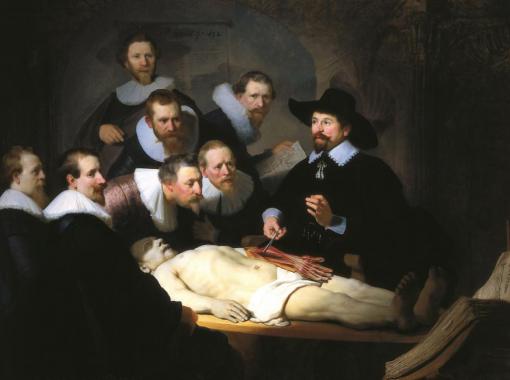
The founding principle of the MBoA curriculum is that students acquire proficiency in four areas: 1) molecular biology; 2) pathology; 3) aging; and 4) quantitative biology (statistics, bioinformatics, etc). Students in all Brown BioMed programs are required to complete 6 course credits.
Students entering through the MCB Graduate Program have to satisfy the core requirements of that program. These are BIOL2030 (Foundations for Advanced Study in the Life Sciences, or the MCB 'core') and BIOL2010 (Quantitative Approaches in Biology). BIOL2030 is a 2 credit course, so these two courses will provide 3 credits. BIOL2030 will satisfy the MBoA molecular biology requirement, and BIOL2010 will satisfy the MBoA quantitative biology requirement. In addition, students will be required to take BIOL2350 (Biology of Aging) to satisfy the MBoA aging requirement, and BIOL2860 (Molecular Mechanisms of Human Disease, or the Pathobiology 'core') to satisfy the pathology requirement. This leaves 1 credit available for an elective course. A popular choice has been BIOL2150 (Scientific Communication), but a variety of other 200-level courses are also available.
Students entering through the Pathobiology Graduate Program have to satisfy the core requirements of that program. These are BIOL2860 and BIOL2050 (Biology of the Eukaryotic Cell). BIOL2860 will satisfy the MBoA pathology requirement, and BIOL2050 will satisfy the MBoA molecular biology requirement. In addition, students will be required to take BIOL2350 to satisfy the MBoA aging requirement. Students will also have to satisfy the quantitative biology requirement; a popular choice has been BIOL2010, but a variety of courses offered by the Biostatistics Department can also be taken. This leaves 2 credits available for elective courses. As with MCB students, BIOL2150 has been a popular choice, and a variety of other 200-level courses are also available.
For further details students should consult the MCB and Pathobiology Graduate Programs. Students are also encouraged to contact the Directors of Graduate Studies of the relevant programs: Professor John Sedivy (MBoA), Professor Mark Johnson (MCB), and Professor Jonathan Reichner (Pathobiology).
For descriptions of the courses students should consult the Brown Courses Catalog.